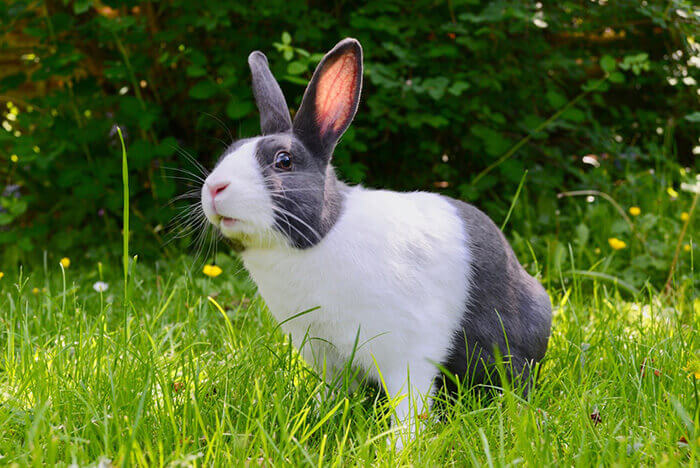

Bugs Bunny Was Wrong
What’s up, doc? That iconic rabbit has actually led us astray. Carrots shouldn’t be a main food for bunnies. The tops of carrots are acceptable, though. Need suggestions beyond the carrot greens? What is good for your rabbit and what you should avoid is actually a bit complicated. That’s all due to a special digestive system in your bunny. Read on for ideas on what to feed (and what NOT to feed!) your bunbun.
Incorporate These Foods
An article on the House Rabbit Society site gives an extensive list: arugula, basil, cucumber leaves, endive, dandelion leaves, wheatgrass, and the list goes on. The key is to introduce one new food every three days and keep an eye on your rabbit’s poo. If it starts to get soft, you may want to remove that food from its diet.
Steer Clear of These
While the suggestions listed above are great to incorporate into your rabbit’s diet, we wanted to also include a list of absolute no-nos. Here’s a list of foods you should never feed your rabbit: iceberg lettuce, chard, avocado, peanut butter, chocolate, yogurt drops, cereal, oatmeal, walnuts, rhubarb, potatoes, cauliflower. For a full list and explanation why each food is prohibited, read this PETA article.
Oxalic Acid
There’s a naturally occurring chemical called alkaloids, which are mild toxins that protect plants in the wild from being overgrazed. The article on the House Rabbit Society site explains: “The one most talked about with rabbits is oxalic acid and it is completely harmless to animals or humans when consumed in small amounts. Most of the fresh vegetables we feed rabbits have a low to zero level of oxalic acid, but a few, most notably parsley, mustard greens and spinach have relatively high levels.” The site goes on to explain that these foods are nutritious still, but should be offered in smaller quantities and that greens should always be rotated to keep oxalic acid at lower levels. Other examples of foods higher in oxalic acid include beet greens, swiss chard, radish tops, and sprouts.
Avoid Starches & Sugars
The House Rabbit Society article goes on to clarify why another food group should never be fed to rabbits: “The most common types of foods that do create havoc in the rabbit’s GI tract are those that are high in starch and sugars because they create a change in the pH of the cecum and eventually can throw the whole system off. The result can be serious GI disease.” This is why carrots shouldn’t be a main food for rabbits—the sugar content can disturb its digestive system.
Keep Those Teeth Trim
Part of the complications from the incorrect diet can be found in dental health. A Cooperative Extension site article explains: “If fed a diet with too little fiber or plant material, the rabbit’s teeth will continue to grow without being worn and may become overgrown or develop malocclusion.” While we have given the suggestions on greens above as a supplement, rabbits should always be supplied with high-quality grass hay or a pelleted diet daily. This article goes on to explain, “The fiber in grass hay promotes proper digestion and also gives your rabbit something to nibble on throughout the day.”
More Misconceptions
For more common misconceptions that have been perpetuated about animals, watch this fascinating video. It covers eight things people have misunderstood about animals through the decades.
